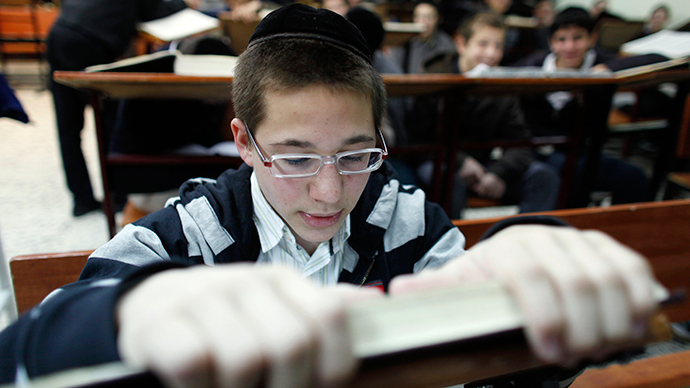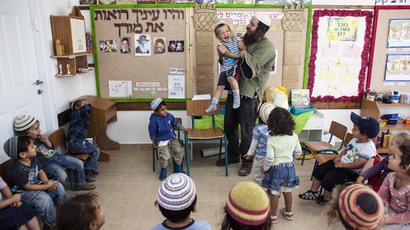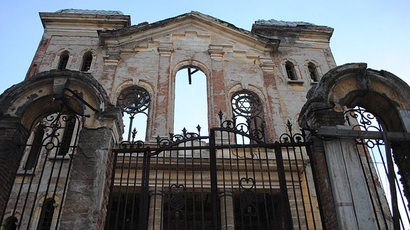Downgrade to 'special status'? Fate of Arabic language at heart of Israeli nation state bill debate

Arabic could be stripped of Israel's official second language status if a ‘tougher’ version of the controversial nation-state bill is passed. The language is already subject to discrimination, RT’s Paula Slier reports from Tel Aviv.
Examples of Arabic being unwelcome in Israel are plenty, according to Dadi Komem, director of education programs at the Abraham Fund Initiatives, an NGO promoting peaceful coexistence between Israelis and Palestinians.
READ MORE: Netanyahu govt approves disputed bill making Israel nation-state of Jewish people
“We see more and more working places for instance that ask
their employees not to speak Arabic in front of customers, or not
to speak Arabic at all, or in shopping malls,” Komem told
RT. “Sometimes in the Knesset itself we hear Knesset members
speaking against using Arabic in the Knesset.”
Eliminating the status of Arabic as an official language is part
of a nation-state law, proposed by a right-wing member of the
Knesset, Zeev Elkin. If it’s passed, Arabic could be downgraded
to a language with a “special status”.
The bill approved by the Israeli government on Sunday included
Elkin’s tough wording.
To become law the bill will have to be passed by the Knesset. Prime Minister Benjamin Netanyahu is drafting a "softened" version of the law to take to the parliament. In it, the current status of the Arabic language will likely not be challenged.

It’s not yet clear which version of the law – the tougher or the
softer one - is going to be voted on by the Knesset.
Spearheading the campaign for the tougher version to be passed is
parliamentarian Shimon Ohayon, who is also member of the Knesset
education committee.
“It is a declaration,” Ohayon told RT. “It has
meaning on a cultural and national level. It sends a message to
the Arab residents - that they live in the state of Israel which
is the state of the Jewish people.”
The US has already slammed the whole idea of the Israeli
nation-state law.
"Israel is a Jewish and democratic state and all its citizens
should enjoy equal rights. We expect Israel to stick to its
democratic principles," the State Department said.
The author of the controversial bill’s extreme version, Zeev
Elkin, is not impressed.
"We can keep the foundations of democracy even without the
help of the partner over the ocean," he said, according to
Yisrael Hayom, as cited by Haaretz.

Human rights advocates believe that even a softer version of the
bill is too much.
“The government’s support for both these proposed laws
conveys a negative message to Arab citizens in Israel regarding
their affinity to the State,” the Abraham Fund Initiatives
said in a statement.
Wahiba Ziad, who teaches Arabic in a Jewish elementary school in
Nazareth, hopes the language spoken by a fifth of Israel’s
citizens will not lose its current status.
“First of all, it’s a proposal, the proposal might be
approved and it might not be approved, but if - god forbid - it
is, I think it might have a bad impact,” Ziad told RT.
Tensions between Israelis and Palestinians have been
exceptionally high lately, triggered by disrupted access for the
Arabs to a landmark place of worship, the Al-Aqsa mosque in
Jerusalem.
The last several weeks have seen attacks launched by both sides
almost every day and many wondering if the current stand-off
could be described as the “Third Intifada”.
Five people have been killed and 7 wounded in one of the
bloodiest attacks a week ago, when two assailants
attacked synagogue worshipers with knives, axes and a pistol.














